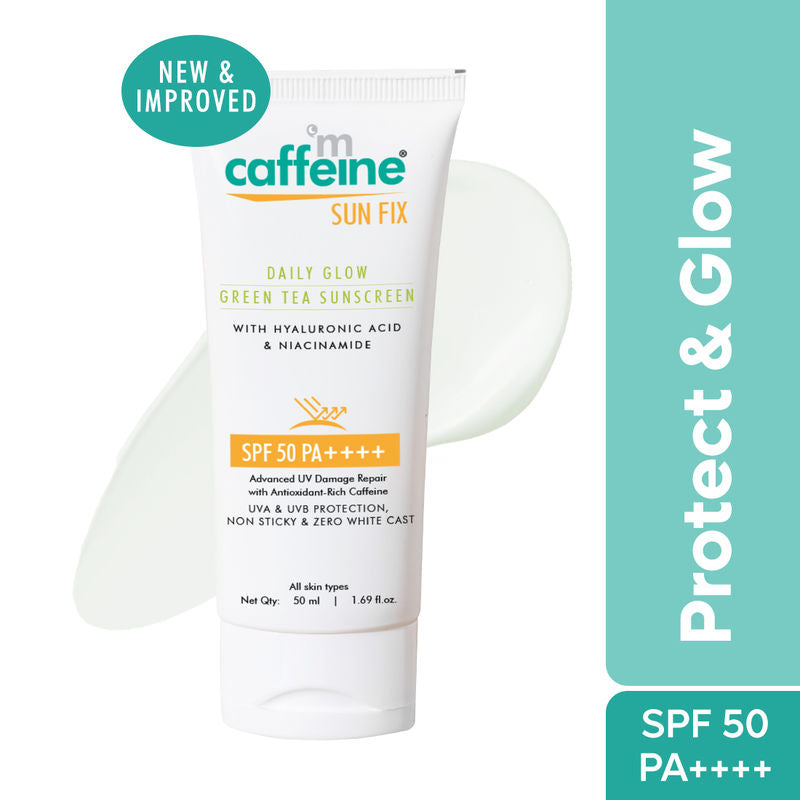
Highlights
WHAT IS IT?
Face Sunscreen with 26 ingredients
FEATURES
UV Protection, No White Cast, Hydrating, Reduces sunburn, Fades dark spots and blemishes, Repairs skin barrier, Deep hydration
BEST FOR
dry
CHECKS
Does not contain parabens, sulfates, or harsh chemicals
Who Is It For?
All Genders No Specific Age Range MentionedWhat Does It Help With?
Sun Protection Dark Spots Hyperpigmentation Hydration Anti-aging (reduces Wrinkles And Fine Lines)Budget
Affordable (under $30)How To Use
Which routine should it be used in?
Instructions:
Key Information










What MCaffeine Says
Product Description:
MCaffeine Daily Glow Sunscreen SPF50 PA++++ provides UV protection with no white cast. It contains Green Tea Extract which protects against sun damage and reduces sunburn, Niacinamide which fades dark spots, blemishes and protects the skin barrier, and Hyaluronic Acid which hydrates and repairs the moisture barrier.
About the Brand:
Ingredients Overview
Ingredients List
aqua-water,diisopropyl-adipate,propylene-glycol-dicaprylate-dicaprate,c12-15-alkyl-benzoate,diisopropyl-sebacate,ethylhexyl-methoxycinnamate,avobenzone,octocrylene,hydrogenated-polyisobutene,methylpropanediol,methyl-methacrylate-crosspolymer,camellia-sinensis-green-tea-leaf-extract,caffeine,hyaluronic-acid,niacinamide,phenoxyethanol,ethylhexylglycerin,octenidine-hcl,polyacrylate-13,polyisobutene,polysorbate-20,acrylates-c10-30-alkyl-acrylate-crosspolymer,sodium-gluconate,acacia-senegal-gum,xanthan-gum,sodium-hydroxide,lecithin,tocopherol,ascorbyl-palmitate,fragrance,color
Key Ingredients
Green Tea Extract,Niacinamide,Hyaluronic Acid
Ingredients Details
Avobenzone
Caffeine
Ethylhexylglycerin
Fragrance



